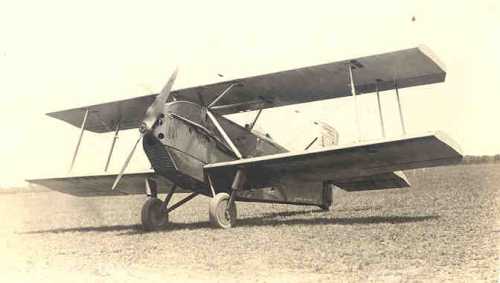
|
|
 |
|
Photo # 16 -- This is a Curtiss Carrier Pigeon with interchangeable ailerons, rudder and flipper, droppable fuel tank and interchangeable upper and lower wing panels. It carried a mail load of 1,000 pounds; span 41 feet, 11 inches; length 28 feet, 9 inches; height, 12 feet, 1 inch; speed 126 mph; approximate range 725 miles; engine Liberty 12 cylinder, 400 hp. Question: Is this the same plane or a later production model of the Curtiss two-seat HA "Dunkirk" fighter floatplane? The HA has a negative dihedral of the lower wing while the upper wing is positive. What is the possible advantage of this configuration? Could the interchangeable upper and lower wings be the reason for the opposing dihedrals on the HA? Answer: Not the same plane or even a later production
Dunkirk, however the aircraft are related by airmail service.
The Dunkirk was a smaller and lighter floatplane equipped aircraft
(26 ft span, 30 ft 9 in length, this was longer than the Carrier
Pigeon however, empty wt of 2449 lp as opposed to the
Carrier Pigeons 3603 lbs. How they relate in the airmail
service is simply that the single-bay Dunkirk was equipped with
wheeled gear in 1919 and sold to the Post Office. Later,
3 two-bay Dunkirks were also sold to the Post Office.
It's quite possible that this experience influenced Curtiss's
design for the Carrier Pigeon. My reference is Curtiss
Aircraft, 1907-1947, by Peter M. Bowers, published by Conway
Maritime Press Ltd. UK. The presumption of design influence
is my own. I haven't been able to locate any reason for the dihedral/anhedral on the main wings. The only reference is that after the first two HA's crashed the third prototype reverted to upper and lower wings with no dihedral/anhedral. Rod Thorsen |
History |
Air Mail Pilots
|
Photo
Gallery |
Flight Info
|
Antique Airplanes
|
Members |
|
copyright © 1999 Nancy Allison Wright, President Air Mail Pioneers
|